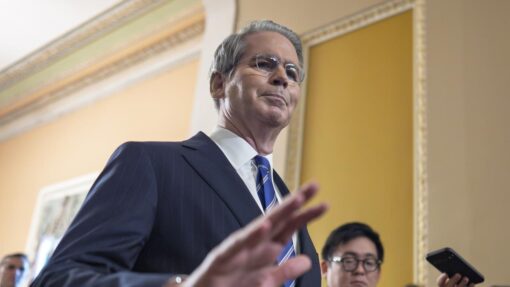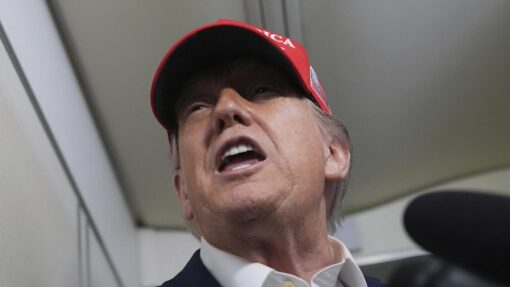Omicron-related deaths ‘are yet to peak’
Andrew Brown |
It will be several weeks before deaths and hospitalisations from the Omicron variant reach their peak, despite plateauing COVID-19 cases, the nation’s chief medical officer says.
Paul Kelly said despite a challenging few weeks dealing with Omicron, it would be some time before the worst was reached.
“We expect death and hospitalisations to continue to rise over the next couple of weeks as we are about to peak in terms of case loads, particularly in the eastern states,” Professor Kelly told ABC Radio on Wednesday.
“We know from international experience that Omicron rises quickly, it plateaus and then falls quickly, and I fully expect that this will be the experience here in Australia.”
It comes as NSW recorded another 32,297 COVID-19 cases on Wednesday, with a further 32 fatalities.
Meanwhile, Victoria had 18 deaths and 20,769 new infections.
Australia had its highest one-day death toll from the pandemic on Tuesday, with 77 fatalities reported.
That figure included 36 deaths in NSW, 22 in Victoria, 16 in Queensland – more than double its previous high – two in South Australia and one in the ACT.
The chief medical officer said preparations were being carried out for a second rise of Omicron cases.
“I expect we will continue to see cases of Omicron right throughout the next few months, but it will be at a much lower level than it is now,” Prof Kelly said.
The federal government has activated its private hospital agreement, which would allow more than 57,000 nurses from private hospitals to be used in Omicron-affected areas across the country.
The agreement was created in 2020 after the start of the pandemic.
However, Prof Kelly said public hospitals were still coping with Omicron cases.
“There is not a public hospital system in the country that has reached their level of concern,” he said.
“For hospitalisations, ICU is under pressure, particularly in Victoria, but again there’s plenty of room there.”
The head of Australia’s vaccine rollout, Lieutenant General John Frewen, said there wasn’t vaccine hesitancy among the community, despite 70,000 vaccination appointments going to waste last week.
“There have been some challenges in the system with bookings,” Lt Gen Frewen told the Nine Network.
“I think some people have been shopping around to get bookings and then maybe when they’ve got a better booking, they haven’t gone back and cancelled some of the other bookings.”
More than 5.3 million people have received their booster shot since the rollout of the third dose began in November.
More than 380,000 child vaccines have been carried out since eligibility opened for five to 11-year-olds last week.
It comes as Queensland coalition MP George Christensen was heavily criticised for urging parents not to get their children vaccinated for COVID-19.
His comments were made in a podcast interview with Dr Robert Malone, whose views of COVID-19 have been widely discredited.
Prime Minister Scott Morrison has told parents to ignore the advice from Mr Christensen, saying in a statement vaccinations were the best weapon against COVID-19.
“I strongly disagree with the message sent out by Mr Christensen regarding children’s vaccinations,” Mr Morrison said.
“It is contrary to the official professional medical advice provided to the government, and I urge parents to disregard his dangerous messages in relation to vaccines.”
Labor’s health spokesman Mark Butler said not enough action had been taken by the government to call out Mr Christensen’s views.
“We have government MPs using government resources to promote these deeply dangerous and divisive messages with no action from Scott Morrison,” Mr Butler told ABC TV.
“It’s all well and good that (Mr Morrison) disagrees with them and labels them dangerous, but what is he actually going to do to pull them into line?”
More than 73,000 cases of COVID-19 were reported nationally on Tuesday.
AAP


